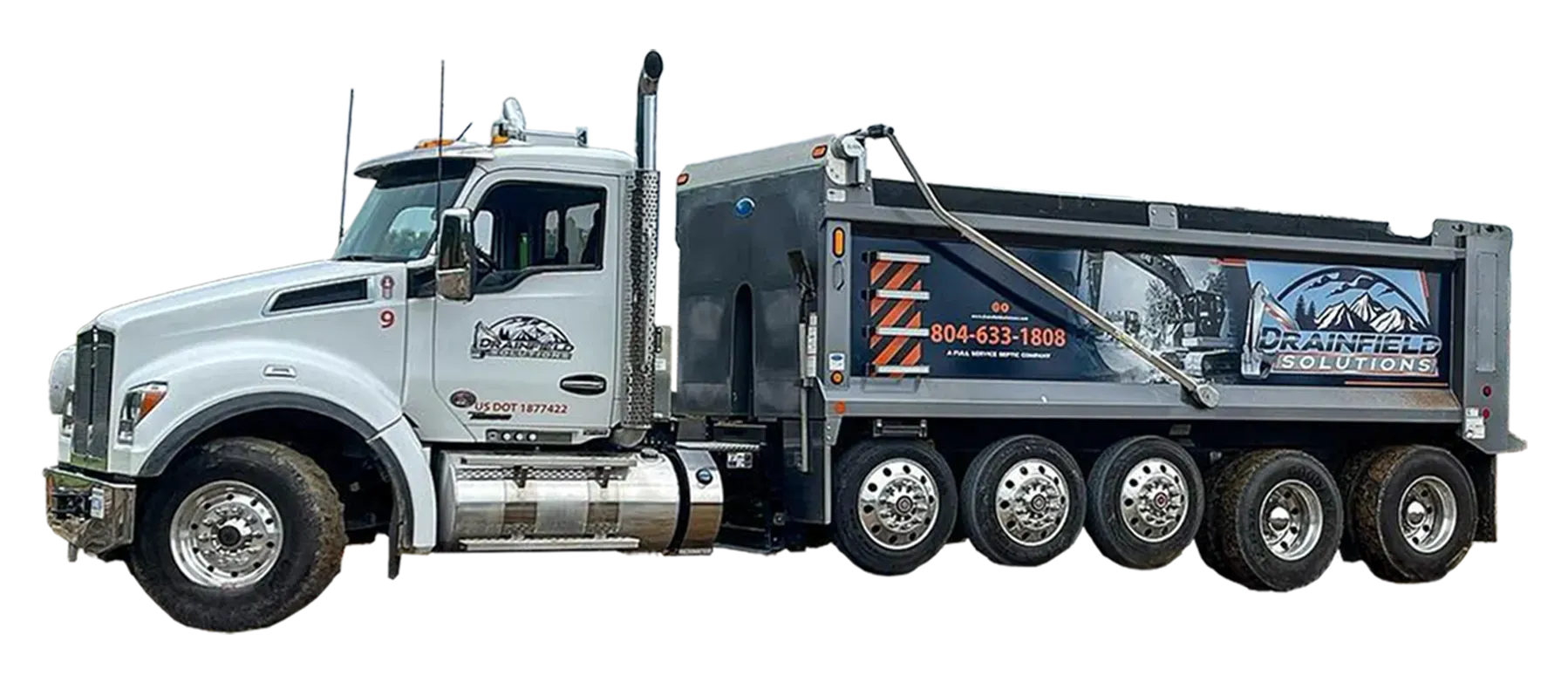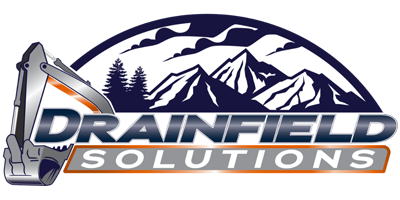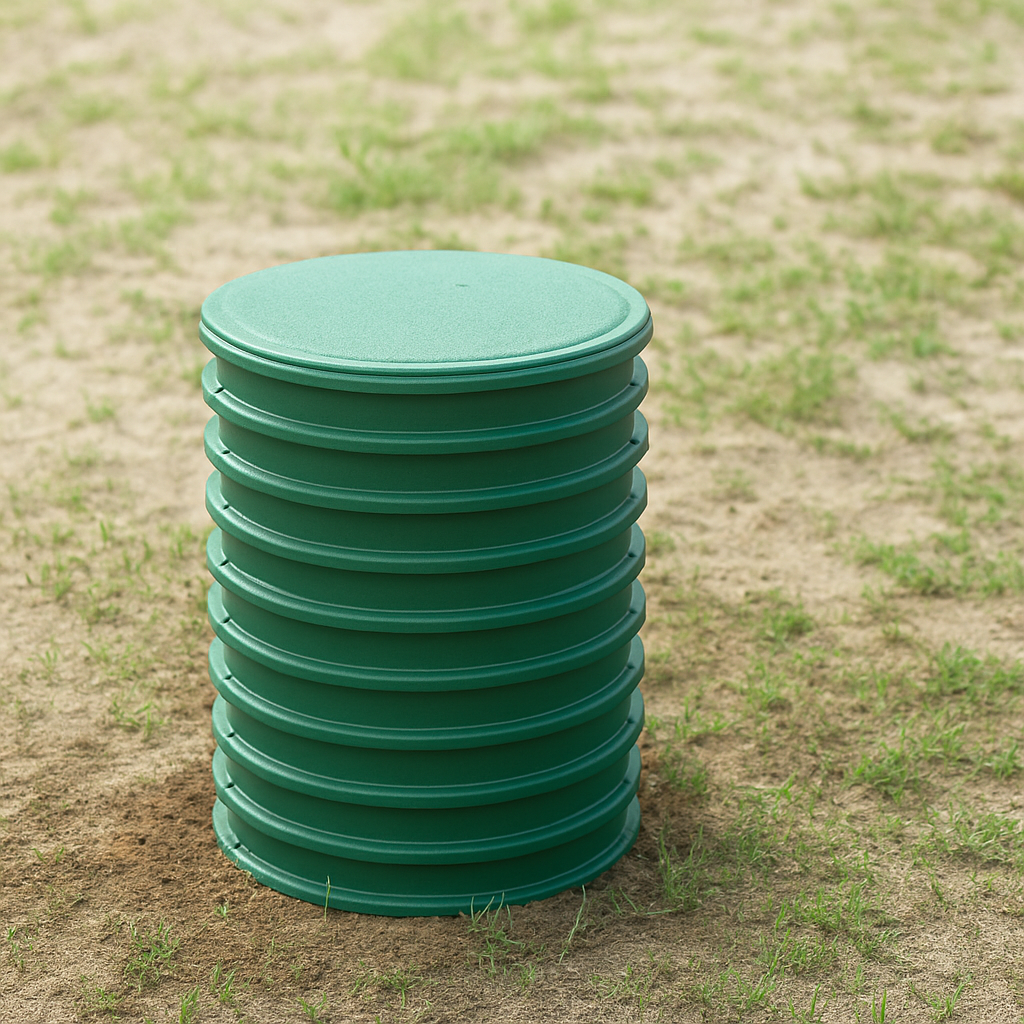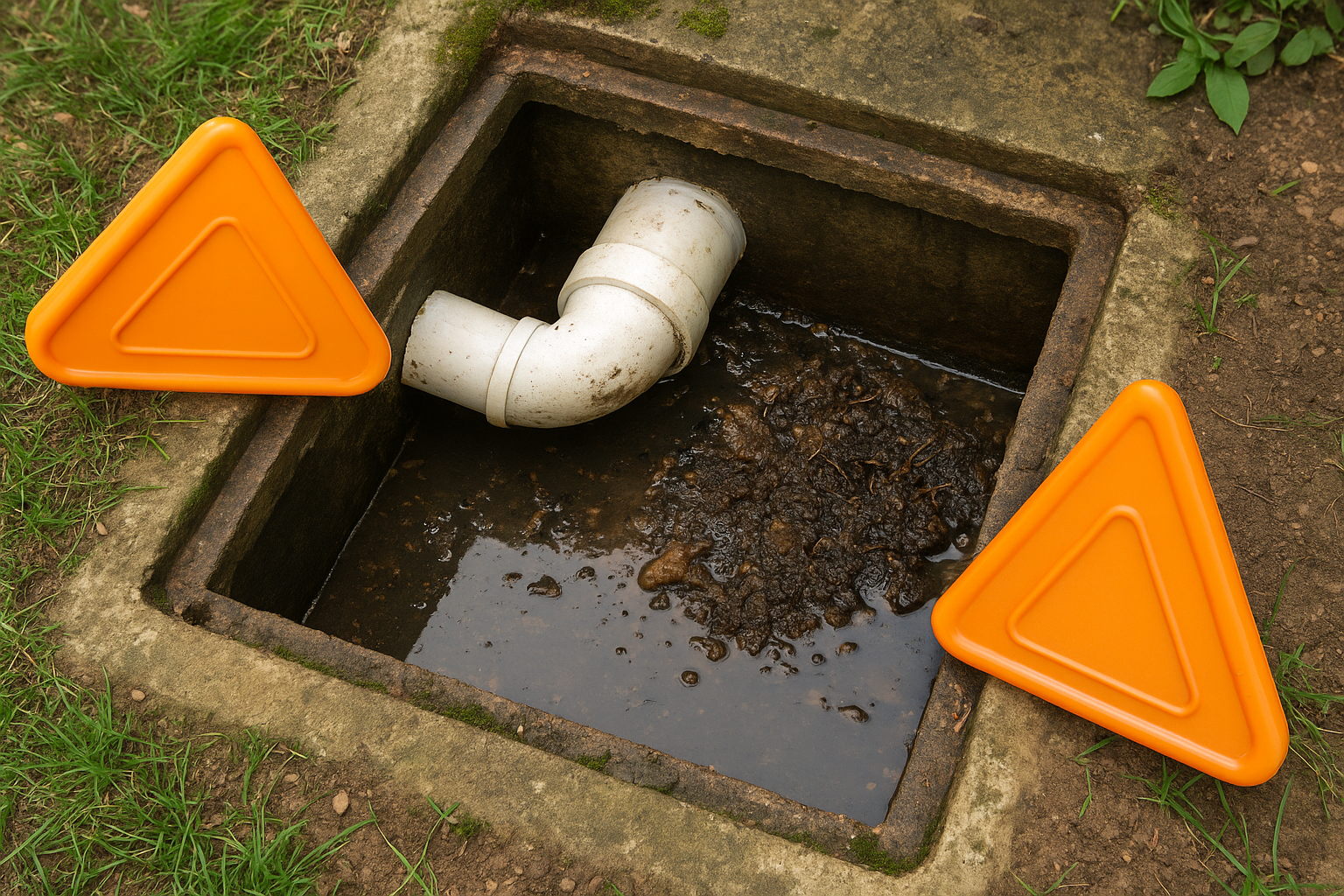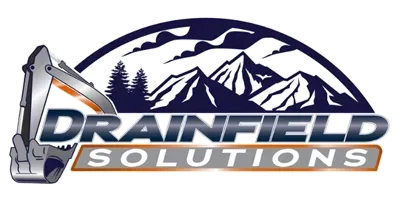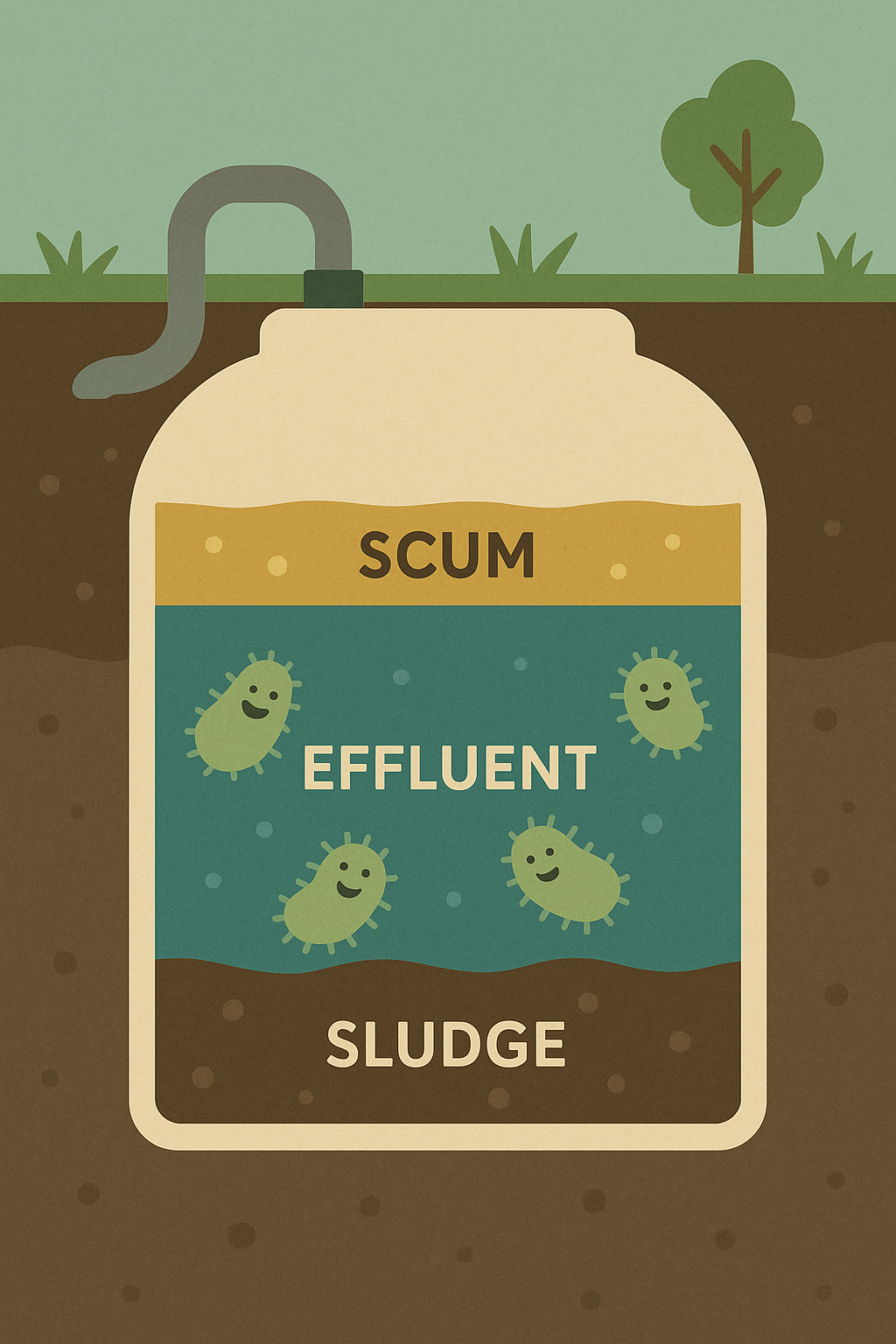
Does Bacteria Have A Role in Septic Systems?
May 23, 2025
Septic systems are an essential part of many homes and businesses, especially in rural areas where municipal sewage systems are not available. While septic tanks and drainfields are the visible components of these systems, the real work is done by something much smaller: bacteria. These microscopic organisms play a crucial role in breaking down waste, maintaining system efficiency, and preventing costly repairs. Understanding the role of bacteria in septic systems can help homeowners and property managers keep their systems in optimal condition.
How Bacteria Work in a Septic System
Bacteria are the key players in the decomposition process inside a septic system. When waste enters the septic tank, it is separated into three layers: solids (sludge) settle at the bottom, liquids (effluent) stay in the middle, and lighter materials (scum) float to the top. Bacteria break down the organic matter in the sludge and scum layers, converting it into simpler compounds that can be safely processed by the system.
There are two main types of bacteria in a septic system:
- Aerobic Bacteria – These bacteria require oxygen to survive and thrive in aerated systems, such as aerobic septic systems. They are highly efficient at breaking down organic matter and are often used in advanced treatment units.
- Anaerobic Bacteria – These bacteria do not require oxygen and are the primary decomposers in traditional septic systems. They work more slowly than aerobic bacteria but are essential for breaking down waste in septic tanks.
Both types of bacteria are necessary for maintaining a balanced and efficient septic system. Without them, waste would accumulate rapidly, leading to clogs, backups, and drainfield failures.
The Impact of Bacteria on Leach Fields
Once the effluent leaves the septic tank, it travels to the leach field, where bacteria continue to play a vital role. The soil in the leach field contains additional bacteria that help filter and further decompose any remaining organic material. This natural process ensures that the water returned to the environment is clean and free from harmful contaminants.
However, if the bacterial balance is disrupted, the leach field can become clogged with solids and biofilms, leading to leach field failure. Homeowners should take precautions to maintain bacterial health to prevent damage from clogged leach fields and avoid costly repair or replacement.
How to Maintain Healthy Bacteria in Your Septic System
Maintaining a healthy bacterial population is crucial for the longevity of your septic system. Here are some best practices to ensure bacteria thrive:
1. Avoid Harsh Chemicals
Household cleaning products, bleach, antibacterial soaps, and harsh drain cleaners can kill beneficial bacteria in your septic system. Instead, opt for septic-safe cleaning products that do not disrupt the microbial balance.
2. Use Septic System Additives Wisely
Some homeowners use bacterial additives to boost their septic system’s efficiency. While some additives can help restore bacterial populations, others may do more harm than good. It’s best to consult a septic professional before using any septic system treatment.
3. Limit the Use of Garbage Disposals
Garbage disposals introduce solid food waste and grease into the septic system, increasing the load on bacteria. If you use a garbage disposal, consider installing a high-quality filter and having your septic system pumped more frequently.
4. Regular Septic Tank Pumping
Even with healthy bacteria, solid waste accumulates over time. Routine septic tank pumping removes excess sludge and prevents solids from reaching the leach field. The frequency of septic tank pumping depends on factors such as tank size, household size, and usage, but most systems require pumping every 3 to 5 years.
5. Conserve Water
Excessive water use can overload the septic system and wash beneficial bacteria out of the tank. Fix leaks, install low-flow fixtures, and spread out laundry loads to maintain a stable bacterial environment.
Signs of a Failing Septic System Due to Bacterial Imbalance
If bacteria are not functioning properly, the septic system may show warning signs, including:
- Slow drains or frequent backups
- Foul odors around the septic tank or leach field
- Lush, overly green grass above the leach field
- Standing water near the leach field
- Gurgling noises in plumbing fixtures
Ignoring these warning signs can lead to septic system failure, requiring costly emergency septic repair or even septic system replacement.
Alternative Septic Systems and Their Bacterial Requirements
In some cases, standard septic systems are not suitable for certain soil types or environmental conditions. Alternative septic systems, such as mound septic systems, aerobic septic systems, or alternative leach fields for clay soil, rely on specialized bacteria to process waste effectively. These systems often require more maintenance and careful bacterial management to function correctly.
For example, an aerobic septic system requires a constant supply of oxygen for aerobic bacteria to thrive, making regular maintenance of aerators and air pumps essential. Similarly, mound septic systems depend on bacterial activity within the sand and soil layers to filter wastewater properly.
The Importance of Professional Septic Services
While homeowners can take steps to maintain bacterial health, professional septic services ensure the system functions efficiently. Septic system installers and repair specialists can evaluate bacterial activity, recommend appropriate septic system treatments, and provide septic system inspections to catch issues before they become major problems.
If you are experiencing issues such as a failing leach field, root intrusion in pipes, or slow-draining fixtures, contact a trusted septic system service provider in your area.
Why Choose Drainfield Solutions?
For nearly two decades, Drainfield Solutions has been the trusted name in septic system services across Central Virginia. As a family-owned business, we take pride in delivering high-quality, professional, and reliable septic solutions to homeowners and businesses alike. Our team specializes in septic tank pumping, leach field repair, system inspections, and alternative septic system installations.
We are committed to Caroline County, Spotsylvania County, Hanover County, Stafford County, King George County, Louisa County and surrounding areas, providing eco-friendly and long-lasting solutions that protect both your property and the environment. Whether you need routine maintenance or emergency septic repairs, our experts are here to help.
Drainfield Solutions.
Your Septic. Our Priority.
Always Reliable. Always Professional.
For expert septic system maintenance, repair, and installation, call us today at
804-633-1808 or visit
www.drainfieldsolutions.com.
Share Post
Latest Posts
Ready to Take the Next Step?
Whether you're in need of a system inspection or regular maintenance, Drainfield Solutions is here to help. Get in touch today for reliable service you can trust.
